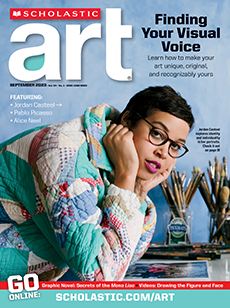The painter Jean Honoré Fragonard was one of the best-known painters of the rococo style—a lively and decorative kind of painting that reflected the tastes of the French court in the 1700's.
Fragonard was born on April 5, 1732, in Grasse, in southern France. Later, his father, who was a glovemaker, took the family to Paris. While in his teens, Fragonard became a student of one of the leading rococo artists, François Boucher. At the age of 20, he won the Prix de Rome (Rome Prize), an award that entitled him to study at the French Academy in Rome.
In Italy, Fragonard found that his eyes were opened to new visual experiences. He grew fond of the decorative art of Giovanni Battista Tiepolo, and he was inspired by the landscape of Italy. Fragonard's beautiful drawings of the Italian countryside are well known.
Fragonard returned to Paris in 1761. The men and women of the French royal court enjoyed the company of the young artist, who signed his paintings with his nickname, "Frago." He painted many scenes of sunny landscapes, elaborate gardens, and lovely young ladies being courted by romantic young gentlemen. Some of his most famous paintings depict scenes of this kind. Among them are The Swing and a series of four paintings called The Progress of Love. Fragonard was known also for his sensitive paintings of single figures captured in moments of privacy. After his marriage to Marie-Anne Gérard in 1769, he portrayed family life, using softly contrasting colors.
The French Revolution, which began in 1789, ended the lively and frivolous life of the royal court. The new France had no place for the charming lightheartedness of Fragonard's paintings.
Fragonard never regained his popularity. He spent his last years partly in Grasse and partly in Paris. For a time he served as an official at the National Museum of Art (now the Louvre). Fragonard died nearly forgotten, in Paris, on August 22, 1806.
